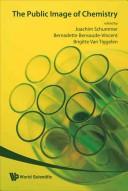| Listing 1 - 10 of 12 | << page >> |
Sort by
|
Book
ISBN: 9783518260234 Year: 2009 Publisher: Frankfurt am Main : Suhrkamp,
Abstract | Keywords | Export | Availability | Bookmark
 Loading...
Loading...Choose an application
- Reference Manager
- EndNote
- RefWorks (Direct export to RefWorks)

ISBN: 3826011635 Year: 1996 Publisher: Würzburg Königshausen und Neumann
Abstract | Keywords | Export | Availability | Bookmark
 Loading...
Loading...Choose an application
- Reference Manager
- EndNote
- RefWorks (Direct export to RefWorks)
Chemistry --- Philosophy
Book
ISBN: 3826015037 Year: 1998 Publisher: Würzburg Königshausen & Neumann
Abstract | Keywords | Export | Availability | Bookmark
 Loading...
Loading...Choose an application
- Reference Manager
- EndNote
- RefWorks (Direct export to RefWorks)

ISBN: 9812567291 9789812567291 Year: 2006 Publisher: Hackensack, N.J. World Scientific
Abstract | Keywords | Export | Availability | Bookmark
 Loading...
Loading...Choose an application
- Reference Manager
- EndNote
- RefWorks (Direct export to RefWorks)
Nanotechnology --- Philosophy --- Moral and ethical aspects --- Social aspects --- Philosophy. --- Moral and ethical aspects. --- Social aspects. --- Nanotechnology - Philosophy --- Nanotechnology - Moral and ethical aspects --- Nanotechnology - Social aspects --- General ethics --- Molecular physics --- Applied physical engineering --- Nanotechnologie --- Philosophie --- Aspect moral --- Aspect social
Book
ISBN: 9811233535 9789811233531 9789811249488 9811249482 9789811233555 Year: 2022 Publisher: Hackensack, N.J. World Scientific
Abstract | Keywords | Export | Availability | Bookmark
 Loading...
Loading...Choose an application
- Reference Manager
- EndNote
- RefWorks (Direct export to RefWorks)
"Although chemistry has been the target of numerous public moral debates for over a century, there is still no academic field of ethics of chemistry to develop an ethically balanced view of the discipline. And while ethics courses are increasingly demanded for science and engineering students in many countries, chemistry is still lagging behind because of a lack of appropriate teaching material. This volume fills both gaps by establishing the scope of ethics of chemistry and providing a cased-based approach to teaching, thereby also narrating a cultural history of chemistry. From poison gas in WWI to climate engineering of the future, this volume covers the most important historical cases of chemistry. It draws lesson from major disasters of the past, such as in Bhopal and Love Canal, or from thalidomide, Agent Orange, and DDT. It further introduces to ethical arguments pro and con by discussing issues about bisphenol-A, polyvinyl chloride, and rare earth elements; as well as of contested chemical projects such as human enhancement, the creation of artificial life, and patents on human DNA. Moreover, it illustrates chemical engagements in preventing hazards, from the prediction of ozone depletion, to Green Chemistry, and research in recycling, industrial substance substitution, and clean-up. Students also learn about codes of conduct and chemical regulations. An international team of experts narrate the historical cases and analyse their ethical dimensions. All cases are suitable for undergraduate teaching, either in classes of ethics, history of chemistry, or in chemistry classes proper"--Publisher's website.
Chemistry --- Chemists --- Chimie --- Chimistes --- Philosophy. --- Moral and ethical aspects. --- Research --- Professional ethics. --- Social aspects. --- Methodology. --- Philosophie. --- Aspect moral. --- Recherche --- Déontologie. --- Aspect social. --- Méthodologie. --- Chemistry - Moral and ethical aspects --- Chemists - Professional ethics --- Chemistry - Methodology --- Chemistry - Social aspects --- General ethics

ISBN: 1281919217 9786611919214 9812773975 9789812773975 9789812567291 9812567291 9781281919212 9812567291 Year: 2006 Publisher: River Edge, NJ World Scientific
Abstract | Keywords | Export | Availability | Bookmark
 Loading...
Loading...Choose an application
- Reference Manager
- EndNote
- RefWorks (Direct export to RefWorks)
Nanotechnology is an emerging and rapidly growing field whose dynamics and prospects pose many great challenges not only to scientists and engineers but also to society at large. This volume includes the state-of-the-art philosophical, ethical, and sociological reflection on nanotechnology, written by leading scholars from the humanities and social sciences in North America and Europe. It unravels the philosophical underpinnings of nanotechnology, its metaphysical and epistemological foundations, and its conceptual complexity. It explores the ethical issues of nanotechnology, its impact on hu
Nanotechnology --- Philosophy. --- Moral and ethical aspects. --- Social aspects.
Book
Abstract | Keywords | Export | Availability | Bookmark
 Loading...
Loading...Choose an application
- Reference Manager
- EndNote
- RefWorks (Direct export to RefWorks)
Book
ISBN: 3662544490 Year: 2017 Publisher: Berlin, Heidelberg : Springer Berlin Heidelberg : Imprint: Springer Spektrum,
Abstract | Keywords | Export | Availability | Bookmark
 Loading...
Loading...Choose an application
- Reference Manager
- EndNote
- RefWorks (Direct export to RefWorks)
Zwischen Faszination und Verteufelung: Chemie in der Gesellschaft Chemie! Als Schulfach wird sie von wenigen geliebt und von vielen gefürchtet. Im Alltag ist sie allgegenwärtig, unverzichtbar und doch häufig Gegenstand gesellschaftlicher Kontroversen. Wie sich die Kluft zwischen Ansehen und Bedeutung der Chemie überbrücken lässt, ist die Leitfrage dieses Bandes. Autoren aus Wirtschaft, Naturwissenschaft sowie Geschichte, Philosophie und Sozialwissenschaften reflektieren Fragen der öffentlichen Wahrnehmung, Ethik und Perspektiven für die Chemie-Kommunikation. Die Herausgeber Marc-Denis Weitze leitet den Themenschwerpunkt Technikkommunikation in der Geschäftsstelle der Deutschen Akademie der Technikwissenschaften (acatech) in München. Er ist unter anderem Autor (mit Wolfgang Heckl) von Wissenschaftskommunikation – Schlüsselideen, Akteure, Fallbeispiele (2016). Joachim Schummer ist Herausgeber von HYLE. International Journal for Philosophy of Chemistry und Autor zahlreicher Bücher, darunter Wozu Wissenschaft? (2014), Das Gotteshandwerk (2011), Nanotechnologie (2009) und The Public Image of Chemistry (2007). Thomas Geelhaar ist Chemiker und war bis zum Eintritt in den Ruhestand Ende 2015 32 Jahre für Merck in Darmstadt tätig, zuletzt als Senior Vice President und Chief Technology Officer Chemicals. Er war 2014/2015 Präsident der Gesellschaft Deutscher Chemiker.
Dissertation
Abstract | Keywords | Export | Availability | Bookmark
 Loading...
Loading...Choose an application
- Reference Manager
- EndNote
- RefWorks (Direct export to RefWorks)
Bioreactors --- Bioreactors --- biomass --- biomass --- Fuel crops --- Fuel crops --- Agricultural wastes --- Agricultural wastes --- Methane. --- Methane --- Fermentation --- Fermentation --- renewable energy --- renewable energy --- hygiene. --- hygiene --- Regulations --- Regulations --- design --- design --- Economic analysis --- Economic analysis --- Wallonie --- Wallonie

ISBN: 9789812775849 9812775846 Year: 2007 Publisher: Singapore: World scientific,
Abstract | Keywords | Export | Availability | Bookmark
 Loading...
Loading...Choose an application
- Reference Manager
- EndNote
- RefWorks (Direct export to RefWorks)
Chemistry --- Social aspects. --- Public opinion. --- Physical sciences --- Public opinion --- Social aspects --- Chemistry - Social aspects. --- Chemistry - Public opinion.
| Listing 1 - 10 of 12 | << page >> |
Sort by
|

 Search
Search Feedback
Feedback About UniCat
About UniCat  Help
Help News
News